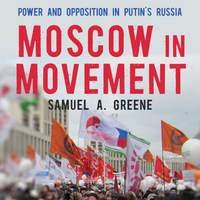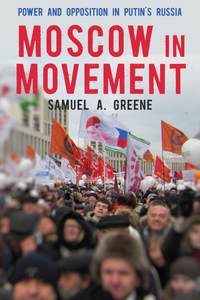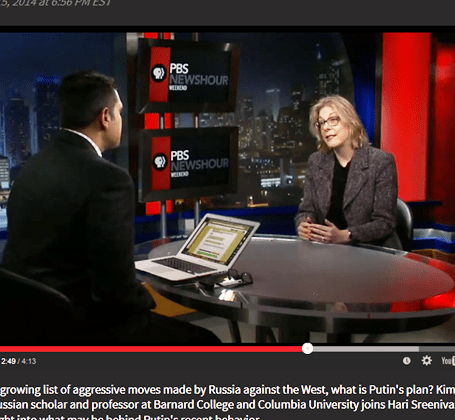Moscow in Movement is the first exhaustive study of social movements, protest, and the state-society relationship in Vladimir Putin's Russia. Beginning in 2005 and running through the summer of 2013, the book traces the evolution of the relationship between citizens and their state through a series of in-depth case studies, explaining how Russians mobilized to defend human and civil rights, the environment, and individual and group interests: a process that culminated in the dramatic election protests of 2011–2012 and their aftermath. To understand where this surprising mobilization came from, and what it might mean for Russia's political future, the author looks beyond blanket arguments about the impact of low levels of trust, the weight of the Soviet legacy, or authoritarian repression, and finds an active and boisterous citizenry that nevertheless struggles to gain traction against a ruling elite that would prefer to ignore them.
On a broader level, the core argument of this volume is that political elites, by structuring the political arena, exert a decisive influence on the patterns of collective behavior that make up civil society—and the author seeks to test this theory by applying it to observable facts in historical and comparative perspective.
Moscow in Movement will be of interest to anyone looking for a bottom-up, citizens' eye view of recent Russian history, and especially to scholars and students of contemporary Russian politics and society, comparative politics, and sociology.
Click here for more details (Stanford University Press)
————–
"Moscow in Movement is an outstanding book that addresses one of the hottest questions today in Russian politics—when and why Russians do and do not mobilize as part of civil society and in opposition to the regime. It breaks new ground both conceptually and empirically."—Henry E. Hale, Associate Professor of Political Science and International Affairs, George Washington University
"Moscow in Movement shifts the focus in the critical debate about civil society in Russia from a narrative of citizens who consistently fail to organize social movements into a far richer, more useful picture of the intricate relationship between state and citizen—illuminating a logic of living in an illogical state. A must-read for anyone attempting to understand the social and political landscape of Russia today."—Sarah Oates, Professor and Senior Scholar, University of Maryland
"Using his own superb empirical work and original theoretical insights, Greene shows that at the center of the postcommunist system in Russia is a fascinating institutional 'disconnect' between the power elite and the society. The latter is not inactive; it is made irrelevant. The elite designed a system that allows it to ignore the society, but this equilibrium is unstable and Greene detects subtle signs of its wobbliness."—Jan Kubik, Professor and Chair, Department of Political Science, Rutgers University
"Civil society in Vladimir Putin's Russia is usually dismissed as beleaguered and passive. Samuel Greene takes a fresh look. He sets aside the stereotype and uncovers through empirically rich, theoretically informed analysis a phenomenon which is surprisingly resilient and enormously complex. This is the best book yet written on the topic."—Timothy J. Colton, Professor of Government, Harvard University











